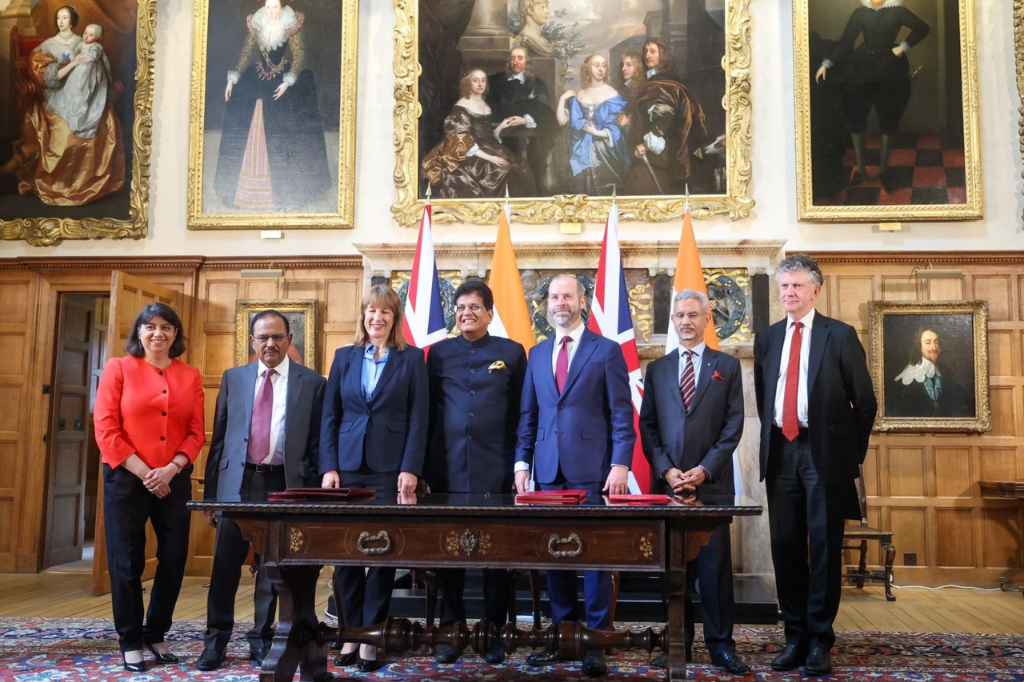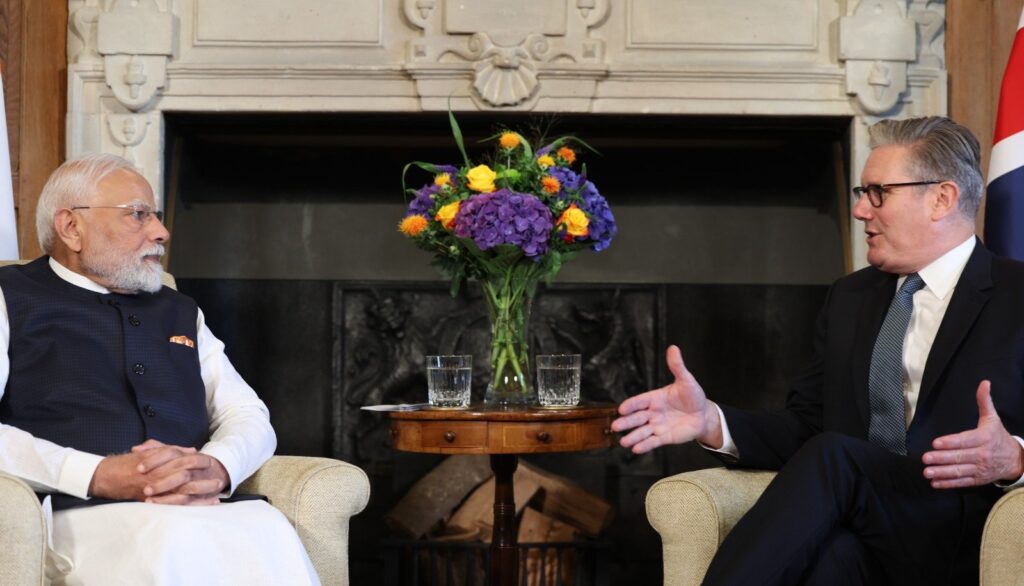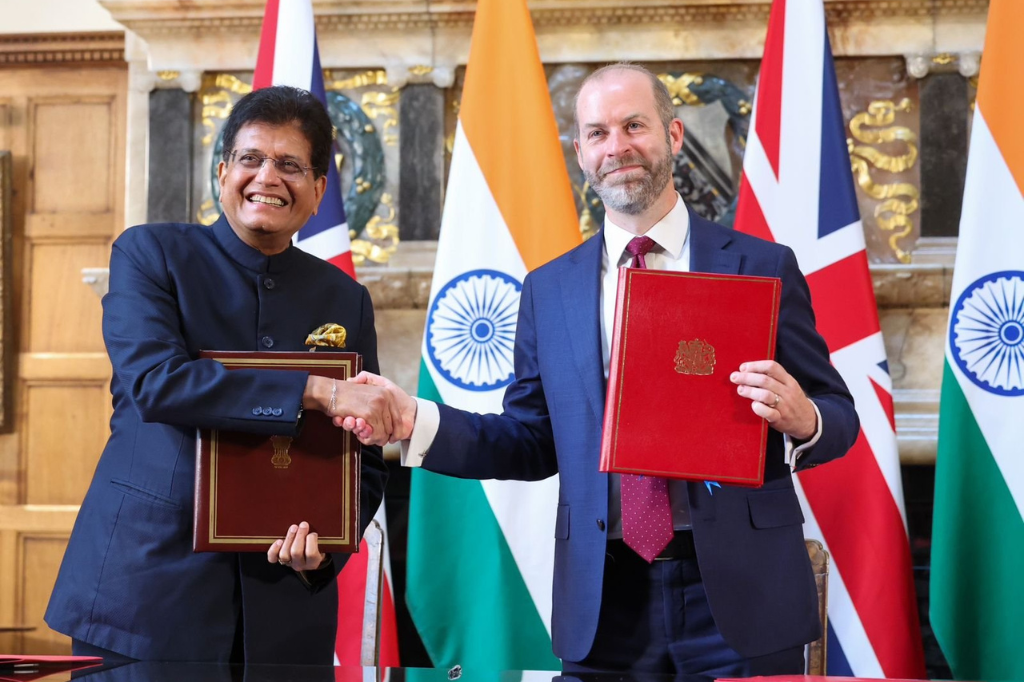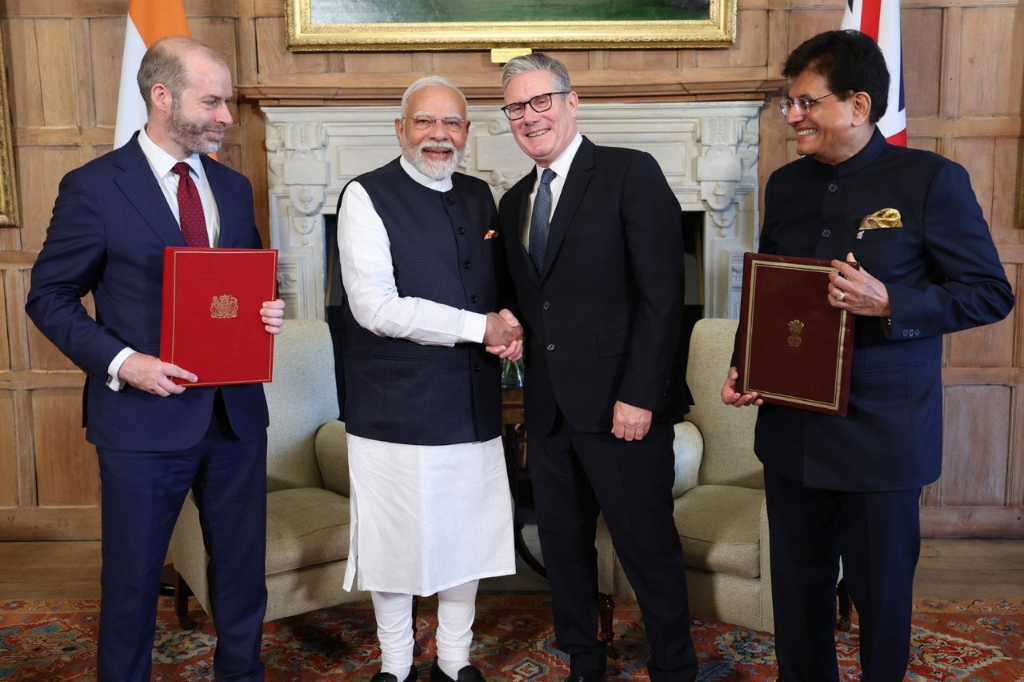India and the United Kingdom on Thursday, July 24, signed a landmark Free Trade Agreement (FTA), marking a significant turning point in bilateral trade relations. The signing took place during PMNarendra Modi’s official visit to London, where he was hosted by newly elected British Prime Minister Keir Starmer. The FTA, which had been under negotiation since January 2022 and concluded earlier this year in May, is expected to significantly boost trade, investment, and economic collaboration between the two countries.
According to estimates from the UK government, the agreement is projected to increase Britain’s GDP by £4.8 billion (approximately $6.5 billion) annually. For India, the FTA is expected to double exports to the UK by 2030. Under the deal, 99 per cent of Indian exports will see their tariffs eliminated, providing a substantial advantage to industries such as textiles, leather, gems and jewellery, auto components, furniture, sports goods, chemicals, and machinery. These sectors currently face UK duties ranging from 4 per cent to 16 per cent, and their removal is expected to make Indian products far more competitive, particularly when compared to goods from Bangladesh and Vietnam.

The FTA will also significantly benefit India’s MSME and luxury product sectors, with zero tariffs on items such as gold and diamond jewellery and leather goods. Indian pharmaceutical companies will gain smoother access to the UK’s National Health Service (NHS) as regulatory approvals are streamlined. In the food and agriculture segment, duties will be cut on processed foods, basmati rice, shrimp, tea, and spices—boosting exports from key states like Kerala, Gujarat, Assam, and West Bengal. Premium Indian food brands will also enjoy greater access to the British market.
India’s chemical exports are set to grow as tariffs on agrochemicals, industrial chemicals, and plastics are removed. Electric and hybrid vehicle manufacturers in India will receive preferential access to the UK market through a quota system—benefiting companies like Tata Motors, Mahindra Electric, and Bharat Forge.

The FTA also addresses mobility and employment, with simplified visa procedures and streamlined employment laws for Indian professionals. The UK will expand its list of eligible occupations for skilled Indian workers, and Indian professionals working temporarily in the UK will be exempt from social security contributions for up to three years—potentially saving around Rs 4,000 crore annually.
On the other side, India has agreed to gradually lower its high tariffs on UK products such as Scotch whisky and gin—from 150 per cent to 75 per cent initially, and eventually down to 40 per cent over a decade. Tariffs on UK-made luxury cars, currently exceeding 100 per cent, will be reduced to 10 per cent under a phased quota system. Other British exports—including cosmetics, biscuits, chocolates, salmon, and medical devices—will also see reduced duties, opening up further avenues in the Indian consumer market.
Overall, the India-UK Free Trade Agreement is being seen as a comprehensive and mutually beneficial deal that not only strengthens economic ties but also deepens strategic collaboration between the two nations.








